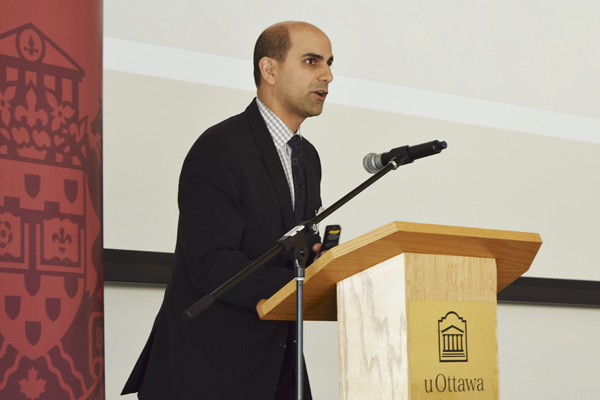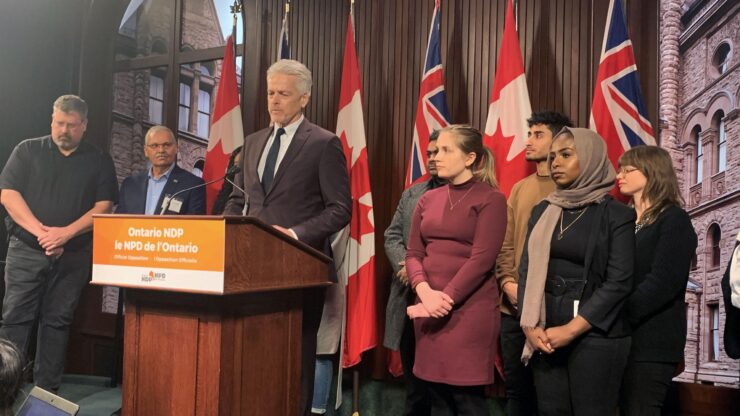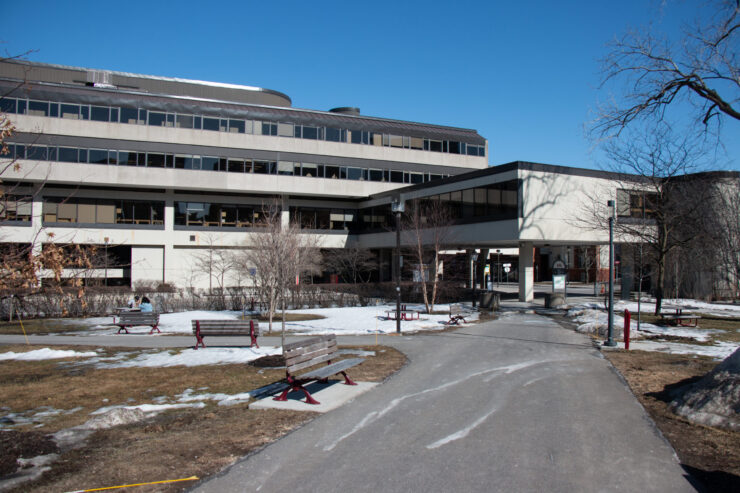U of O Faculty of Law experts discuss Ontario’s attempt to use Section 33
On Wednesday, Sept. 19, the University of Ottawa Faculty of Law hosted a panel comprised of five constitutional law experts, titled “The Constitution, notwithstanding?”.
This first edition of the Public Law Group Speaker Series focused on Section 33 of the Canadian Charter of Rights and Freedoms, better known as the notwithstanding clause, which allows a legislature to override certain sections of the Charter. The discussion was held in response to Ontario’s provincial government announcing their intention to utilize Section 33 in Bill 31, in order to overrule Justice Edward Belobaba’s decision to block Bill 5 which slashed Toronto’s city council from 46 to 25 wards.
At this time, premier Doug Ford will not be using the notwithstanding clause as the Ontario Court of Appeals granted a stay due to Justice Belobaba’s ruling being, “erred in law,” on the same day the panel convened.
The panel consisted of; Vanessa MacDonnell, U of O professor in the Faculty of Law Common Law Section, Carissima Mathen, vice-dean in the Faculty of Law Common Law Section, Errol Mendes, U of O professor in the Faculty of Law Common Law Section, James Kelly, political science professor at Concordia University, and Gib van Ert, principal at Gib van Ert Law, and was moderated by U of O law professor, Michael Pal.
Pal opened the floor by asking why this particular invocation of the clause has been so controversial. Each panelist, though varied in their opinion of Section 33 itself, indicated Ford to be the reason for the backlash.
Kelly, a self-identified defender of Section 33, referred to the Ford government as unpredictable, and noted that the majority of the campaign was run without a platform. “I watched the press conference, that’s not how you talk about such a large constitutional action,” he said.
While also mentioning Ford, Mendes, a self-identified critic of Section 33, focused on the issues he sees within the Charter itself.
“There is no clear understanding that the notwithstanding clause is only used in extreme situations,” he said. Mendes added that the clause was only included because the Saskatchewan government put “a gun to the head of Pierre Trudeau,” the prime-minister who established the Charter.
Mathen called Ford’s use of the clause, “petty, vindictive score settling that is frankly an undignified use of political power,” and framed the use in broader terms of our governing system.
“For me, the remarks the premier made in the press conference was about asserting his legitimacy over the courts legitimacy. We are a constitutional democracy which inherently restrains parliamentary supremacy.”
Van Ert took the lead on the next question which probed the notion of the courts imposing clear, written limits, on the use of Section 33.
Calling up international law as reasoning to allow court-imposed limits, Van Ert said Canada’s signature on the International Covenant on Civil and Political Rights could act as a precedent to protect the derogation of rights by Section 33.
MacDonnell said it depends on which “vision of Section 33 you adopt.” She laid out the two ways the section can be conceptualized; when a government recognizes their bill might infringe upon constitutional rights and when there are valid differences in the interpretation of a bill between political actors and the court, called coordinate constitutional interpretation.
In this case though, according to MacDonnell Ford has not said “we have a reasonable disagreement with the courts,” but instead defended his government’s position under “efficiency and expedience.”
Although Ford will not be using the notwithstanding clause in this recent case, the discussion did speculate on whether the clause may be invoked or attempted by Ford in the future.
All but Kelly concurred that it is more likely than not for Ford to attempt to invoke the clause again. Mathen went so far as to call this a “virtual use,” but agreed with Kelly’s point that much will depend on public opinion, which is unknown until the next public poll.





